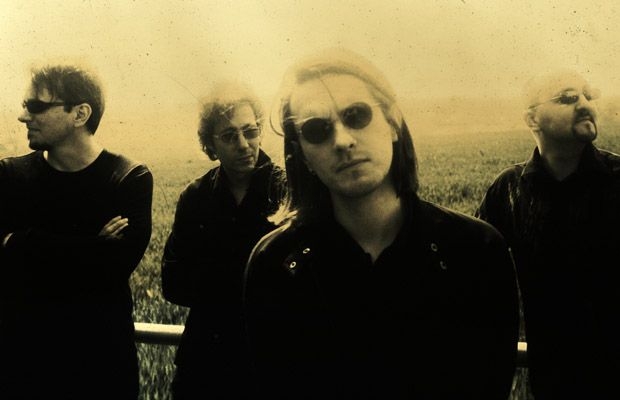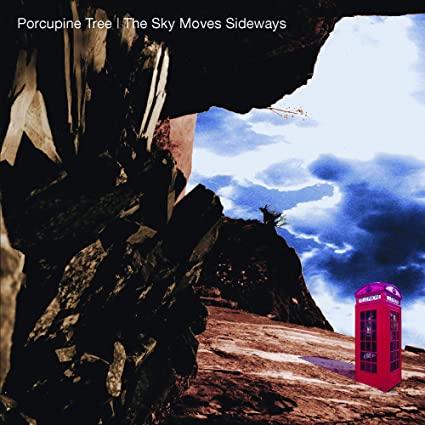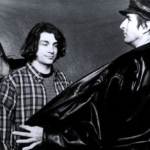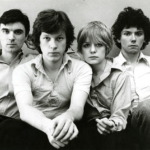PAGE IN PROGRESS

Steven Wilson’s contribution to progressive rock in the post-classic rock era cannot be ignored. The ’80s saw most neo-progressive bands continuing the Genesis tradition of whimsy and fantasy (Marillion and IQ), as well as the evolution of heavy metal into progressive metal (Queensrÿche and Fates Warning), but Wilson was alone at the time in channeling the moody psychedelia of Pink Floyd, the crunchy tension of King Crimson, and the engaging hypnosis of Tangerine Dream. Eventually, the music would transcend these major influences and become something entirely innovative and important for the genre as a whole.
The Porcupine Tree project started off as nothing much more than Wilson screwing around at home, turning into a full-fledged band when the project started gaining steam through the ’90s. They hit their peak during the ’00s with a three-peat of indispensable modern prog records (In Absentia, Deadwing, and Fear of a Blank Planet), and then an indefinite hiatus on the project went into effect shortly after releasing their final album in order for Wilson to shift most of his focus to his solo career and his work on remixing and remastering albums from many other bands and artists. He expressed interest in working on another Porcupine Tree project someday, but that day is not today!
Porcupine Tree’s Bandcamp page
JUMP TO:
(1992) On the Sunday of Life…
(1993) Up the Downstair
(1995) The Sky Moves Sideways
On the Sunday of Life… (1992) – Rating: 4/10
Click Here for the Full Album Review

The humble beginnings of the Porcupine Tree project were nothing more than a fun, pressure-free distraction for Wilson and his buddy Malcolm Stocks. In 1989 and 1991 they released two cassettes of this material when they realized that other people might enjoy it as well. Long story short, when Wilson co-created a record label with his other buddy Richard Allen, Allen coerced him into releasing his existing work. And lo’ and behold we have On the Sunday of Life…, a glorified compilation of the very best that the two cassettes had to offer.
Basically, this is a joke album. A novelty. A way for funny-boy Steven Wilson to let out some of his funny-boy steam. Unfortunately, this album isn’t terribly funny, so based on that metric alone it’s not a success. The other issue I have with this 76-minute collection of scraps is that it could have easily been trimmed down much further and distilled to just the truly potent, musically interesting parts. But it wasn’t, and a lot of On the Sunday of Life… comprises overlong ’60s space rock drones with no linking thematic continuity to keep the final product from the brink of crumbling in your hands. Or ears. Slapped together with Scotch tape, that’s what this is. The individual tracks lack a feeling of importance, and as a whole — even less so.
Out of 18 tracks, there are just a small handful of gems worth hanging onto. “Jupiter Island” is accessible, whimsical, and poppy, with neato psychedelic guitar and Gene Wene high-pitched vocals. “The Nostalgia Factory” is the only necessary extended krautrock exercise (and likely the best track here) with it’s interweaving guitar and tasteful proggy keyboards. “Radioactive Toy”, despite its length, is engaging and unnerving throughout. Wilson breathe-sings about atomic bombs and then launches into a cool psychedelic jam.
A lot of the rest of the album is filler. Ambient go-nowhere experiments and overly psychedelic, frameless noodling does not a great album make. Most of these types of tracks feel like transition pieces rather than actual songs, and there are too many of them taking up the album’s real estate.
Skip this one. Unless you’re a devoted Wilsonophile, this one is not important in order to capture his essence. And if you must insist on hearing what he was tinkering with in his early days, you’d do much better with the very similar Up the Downstair.
Up the Downstair (1993) – Rating: 5/10
Click Here for the Full Album Review

Better, but we’re not quite there yet. The second album, or perhaps the first real album, seems like a second smaller helping of On the Sunday of Life….
For the defense, Wilson’s production skills are already top-notch in 1993 and, since this album was written and arranged in real time and it’s not merely a compilation of earlier material, the flow is noticeably more cohesive. A shorter album with better flow and less filler? There’s your extra point.
However, Steven Wilson’s Type A personality is all over this record. Don’t get me wrong, this album is enjoyable. “Synesthesia” is a very cool opener (after the spoken word intro track) with a repeating electronic beat brimming with nervous energy, and some searing acid guitar solos. “Always Never” is more psychedelic and groovy Pink Floyd ripoff stuff, but since he’s good at ripping off Pink Floyd he gets a pass. And the rest of the songs alternate between these two types of moods enough times for you to realize that this album has very little in the way of fresh ideas. The title track “Up the Downstair” is ten minutes of robotic high-energy MIDI-file trance that goes on far too long. Same with “Burning Sky”. Then there’s “Not Beautiful Anymore”, a mellow, introspective, slow rock number. Same with “Small Fish”. Same with “Fadeaway”. Rehashed ideas cause diminishing returns.
With respect to Wilson’s Type A personality, Up the Downstair has all the building blocks of a good record that were carefully designed and assembled in a sterile laboratory. Everything is too cold and calculated for me to extract any true feeling from the end product.
My final verdict? Absolutely worth the listen. Worth two listens! Worth 20 listens! But if you call this your favorite Porcupine Tree album, then we’re fucking fighting out by the flagpole at 3pm after school.
The Sky Moves Sideways (1995) – Rating: 9/10
No Full Album Review Yet

Now we’re talking! Porcupine Tree’s third album leans harder into Wilson’s Pink Floyd and Tangerine Dream fanboyism than they ever had before and they ever will again, and the results are fantastic. Finally, Porcupine Tree is an actual band and not just a Steven Wilson tinkering-around-in-his-basement solo project. Finally, an album full of music that not only feels vital, but, all these years later, it sounds surprisingly timeless.
The Pink Floyd connection is super obvious with the track structure. A giant song split up into two lengthy sections bookending the album? Wish You Were Here, anyone? And then the slow build at the beginning of “The Sky Moves Sideways Phase 1” even has a ticking clock in it! And I’m pretty sure that the opening guitar melody was lifted straight from Dark Side of the Moon‘s “Breathe”. Come on, Stevie.
But don’t worry, once the mammoth track unfolds, you’ll be too lost in space to care about possible infringements. Watery guitar licks and echoing drums turn into a psychedelic Tangerine Dream exercise, and then the bongos come in, and then a blistering guitar solo, and then a fuckin’ flute! This nearly 19-minute opening track is a suite that’s chock full of lively and interesting ideas that don’t let up until it’s over.
And then there’s “Moonloop”, another giant track that scares you at first because you, like me, heard the previous two Porcupine Tree albums and you, like me, know that the second long-ass track in an album tends to rehash earlier ideas. And yes, at first it progresses similarly to the opener: same bongos, same acid guitar, but this one focuses more on hypnotic repetition as opposed to the opener’s King Crimson-style psych-jazz improvisation. While the trance tracks of the first two records felt flat and lacking texture, Wilson uses his superb mixing powers to create a much more three-dimensional landscape. Little electronic flurries here, a random percussion instrument there; he adds changes ever-so-slightly and draws you in with little hesitation. It does what a trance track is supposed to do: take you far, far away, man.
“The Sky Moves Sideways Phase 2” is just as good as Phase 1, and almost as long. This time it starts with squiggly synths that lead into the most melodic guitar of the album. As the track builds, themes from Phase 1 recur in a manner that doesn’t necessarily rehash. Way to go!
For my money, the entire album could’ve just been these three tracks and it would have been perfect (and, at 52 minutes, more than adequate for a full-length). The other three tracks, “Dislocated Day”, “The Moon Touches Your Shoulder”, and “Prepare Yourself”, feel out of place among the sprawl. Not even worth talking about! Not here anyway.






